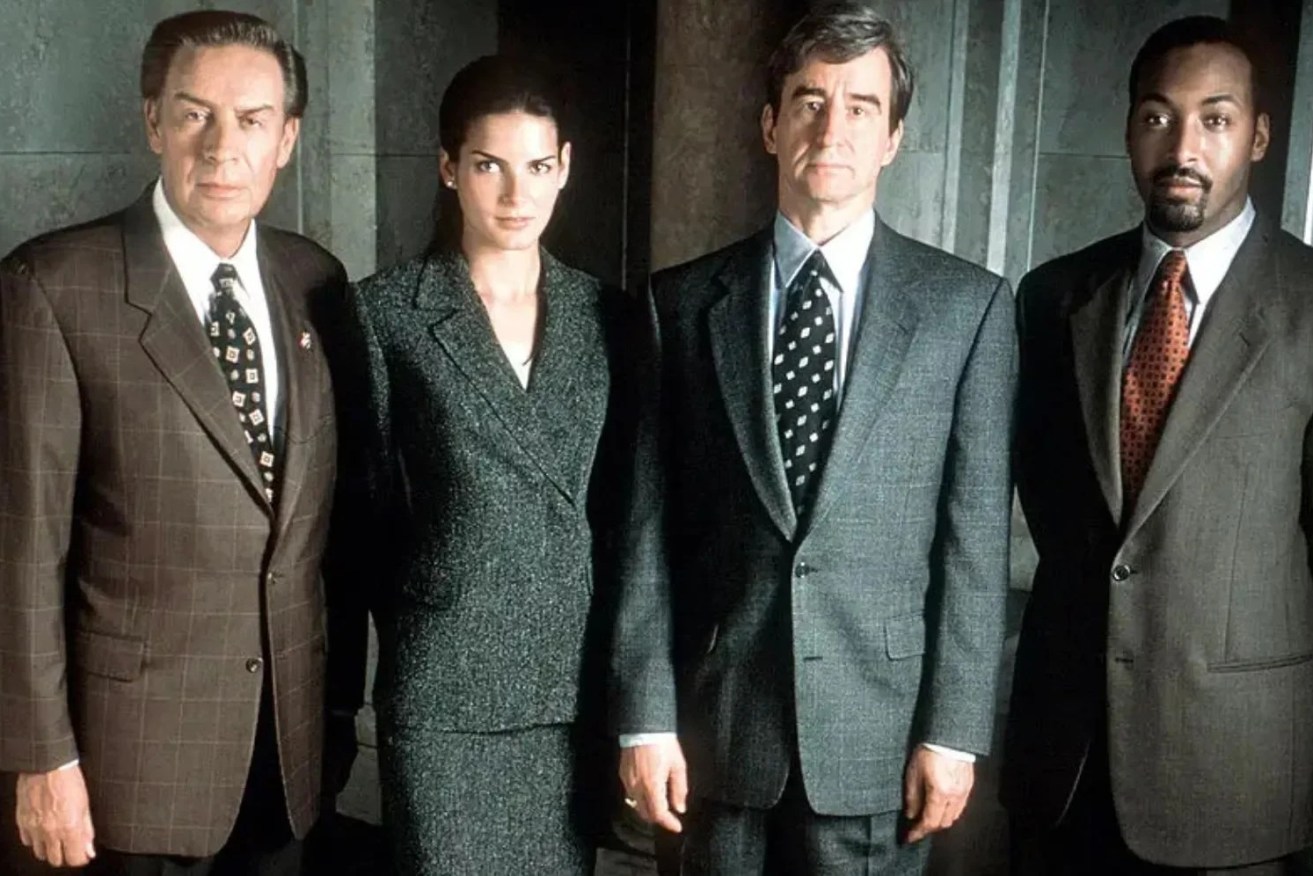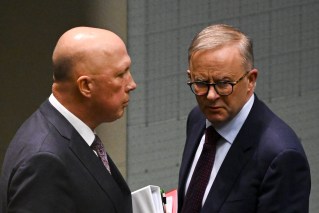The Law and Order election – plenty of glib one-liners and precious little sensible debate
The October Queensland election is going to feel like an episode of Law and Order, with crime, conviction and punishment replacing sensible debate. Dennis Atkins wonders if there’s another way.


Queensland seems to be getting ready for a Law and Order election in October. (Image: Supplied)
Maybe it’s the storms and floods, the changing of the guard in the William Street tower of power or just the expectation of an election year when voting is now less than 300 days away.
Whatever the reason, it feels more active sooner than usual in our muggy sunshine state.
As noted in this column’s global voting festival wrap last week, there’s no time to waste with people going to polls already.
It could be the seemingly 24/7 coverage of the 2024 US Presidential election which is a mix of The Golden Years and Stanley Kubrick’s The Shining. Whatever it is, many of us are already antennae-up for elections.
We had a consequential election already, at the weekend when an island with a population similar to that of Australia went to the polls. Presidential and legislative elections in Taiwan produced an outcome critical to regional geopolitics.
While much will hinge in the months ahead and further, as elsewhere, the main game will be the economy.
Polling and reporting by quality sources such as The Economist and The Financial Times suggest the cost of living and paying the weekly bills will have as much influence as anything – as it always is. It is not “the economy stupid” for nothing.
The economy will count for a lot in Queensland, too. The economy is the state Labor Government’s strongest card in its electoral hand and could give new Premier Steven Miles a much needed get out of jail card.
However, there is a valid feeling the election will be a law and order contest with a race to the bottom between two major parties wrapped around who can be toughest, nastiest and most cruel in punishing offenders, especially young law breakers.
There’s no doubt Queensland has a serious youth crime problem and the parole system is leaky, to say the least. In fact, it’s done busted.
There’s a feeling at one end of the criminal justice system of a revolving door spinning as young offenders break the law, go into the courts, coming out on bail or serving the shortest of sentences, only to be sent back into the community to reoffend.
It does happen. We know because the system’s public record tells us so. Brazen young criminals flout their behaviour, filming themselves joy riding in stolen luxury cars. One crime finished with the offenders showing off outside the electorate office of former premier Annastacia Palaszczuk.
Just how do you deal with it? Miles says he’s always been in the front line of supporting tougher sentencing but he’s also quick to meet with victims’ groups keen to get empathy credit into the political bank.
The man who wants to be premier, David Crisafulli, has the easiest job in the state. He can dial up the outrage with promises of doubling anything the government says it will do or does.
Even if he’s elected in October, we’re years off testing his big pants talk.
This is not new. The politics of “tough on crime” have been around for more than 35 years. In 1989 as Wayne Goss ran down every sling and arrow from the 29-year-old National Party government, he had a soft on crime – especially drug crimes – accusation to bat back.
It was done with a brutally harsh television spot that warned potential offenders there was a “dark, cold, prison cell waiting for them”.
A couple of years later in Britain a young media adviser working for Labour’s Tony Blair coined one of the most famous political catch-phrases on the subject. Alistair Campbell constructed the “tough on crime, tough on the causes of crime” mantra Blair and Labour used to great effect.
It’s still used in campaigning 30 years on.
Now Campbell is a campaign consultant and podcaster who works with centre left parties in Europe and beyond, mainly in the old Eastern Bloc. His crime mantra for them is three direct words: “Protect, prevent and punish”.
You can’t get messaging much better than this. Queensland’s Palaszczuk was told about Campbell’s approach early last year but as with so much, she didn’t do anything with it.
While this gambling, stakes-raising contest will dominate the tabloid headlines – “I see your 10 years for shoplifting and raise it to mandatory jail time for bad language” – it won’t solve the problem either on the streets, in the courts or the youth detention centres.
There has to be a more imaginative and beyond the next headline approach, one that realises without getting the young people prone to offending out of harm’s way there will just be a swelling of the numbers in detention centres and jamming of the court lists.
The cost will be prohibitive and the benefits negligible.
Governments have to invest big amounts into alternative activities – the kind of things outlined in the United Nations’ Youth Crime Prevention Through Sport initiative laid out three years ago which proposed funding teams events and individual programs in a dozen countries.
Closer to home there’s the Ted Noffs Foundation’s RAMP scheme based on the principles of “engagement, treatment and reconnection”.
A local example is the Noffs Foundation-run, state funded residential drug and alcohol treatment facility operating in Caboolture with up to 40 young people caught in the drugs and crime culture given a chance to rehabilitate and rebuild.
As Paula Doneman reported in InQueensland last week, the state government is investing in new programs right now (bit.ly/48AnJhm).
If the state government – whether it is the Labor incumbents or an LNP administration coming in after the October poll – just speeds up the ”push them in and punish” model the “causes of crime” will not be addressed, let alone solved.
We should be able to have a rational, sensible conversation but the likelihood is we won’t. The LNP, with its leader Crisafulli and his deputy Jarrod Bleijie hard-working graduates of the “Just Say No” and divide school of politics, are going to exploit people’s fears, exploit the harm suffered by victims and treat offenders as less than human.
It’s an insult to the voters, regarding them as electoral fodder whose value will evaporate the day after the election.
In answer to the question – What can be done about youth crime? – there’s only one sensible answer: do something that hasn’t been done before or isn’t the easy way because what we are doing isn’t working.
Flooding the streets with police just aimed at punishing, locking kids up for anything and everything and sending them back into the community without any new skills to avoid repetition of their behaviour isn’t going to work.
Repeating the same thing over and over is the very definition of madness.












